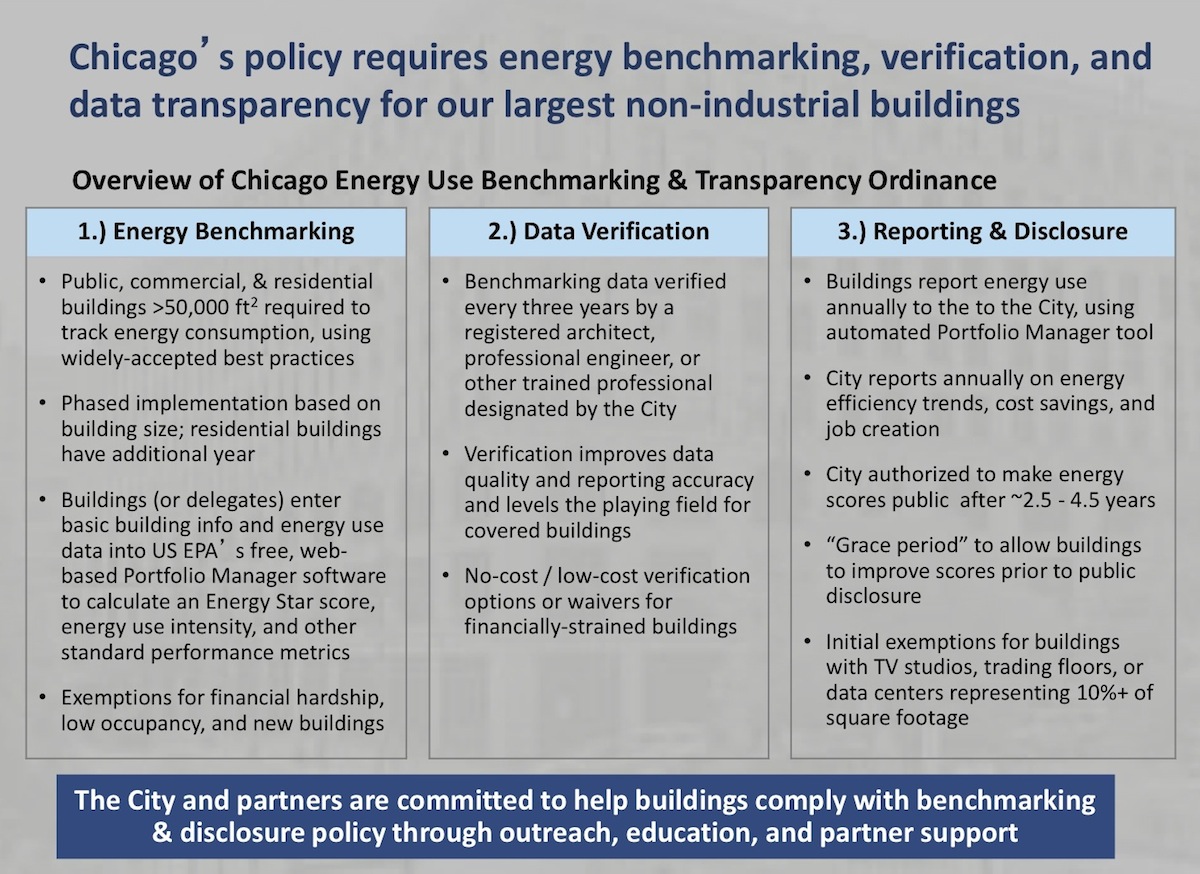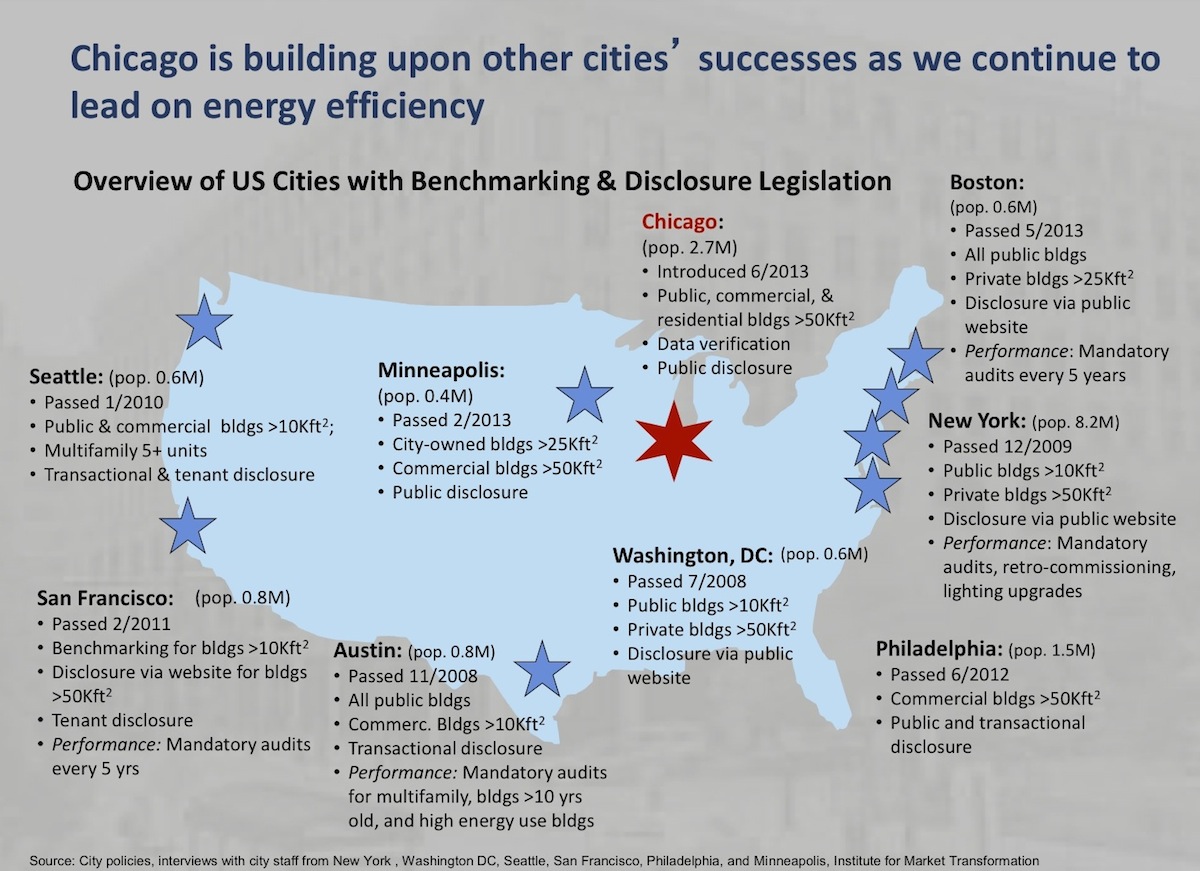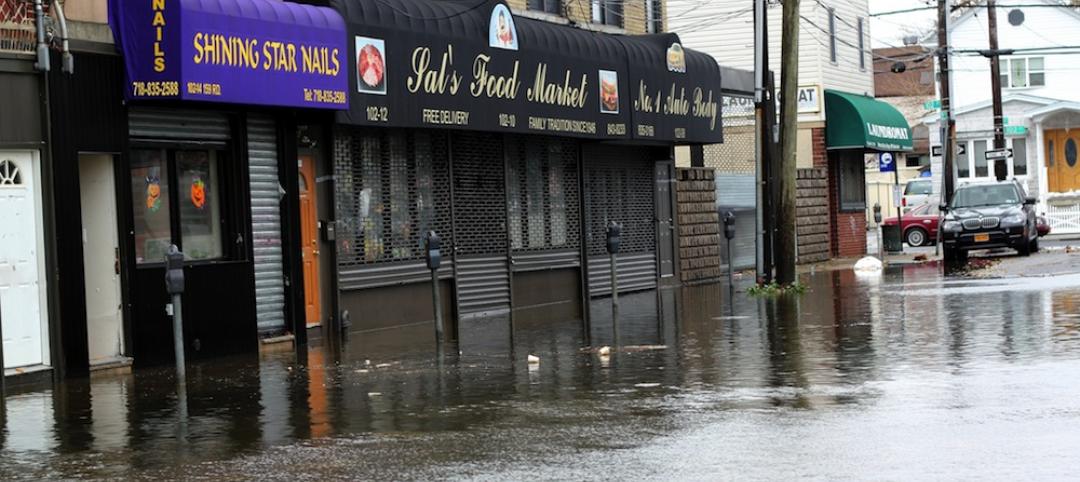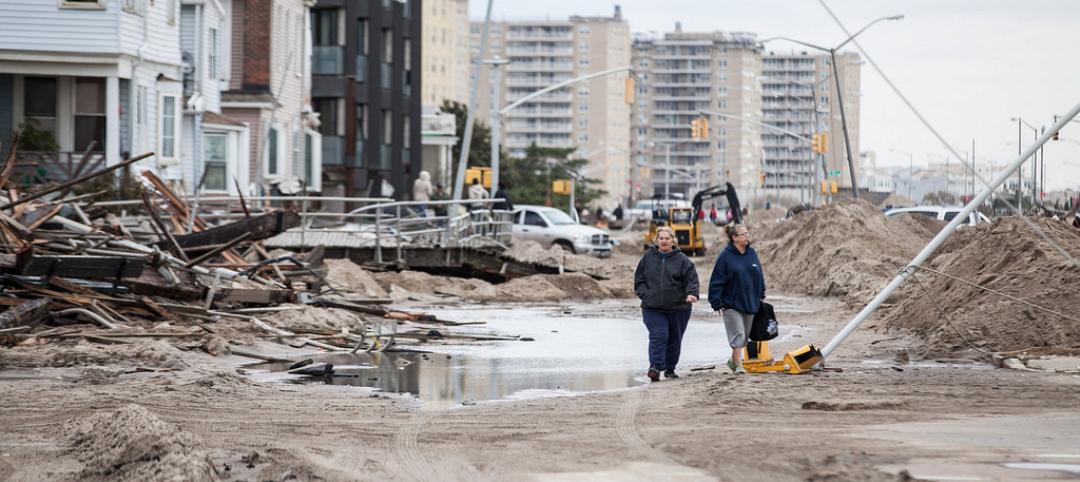The Windy City is the latest U.S. city to enact legislation that mandates building energy benchmarking and disclosure for owners of large commercial and residential buildings. The ordinance was introduced in June 2013 and passed city council vote on Wednesday.
In developing the Chicago Energy Use Benchmarking & Transparency Ordinance, city officials reached out to eight U.S. cities that have enacted similar benchmarking legislation and adopted the best elements of each program.
During a panel discussion at BD+C's BUILDINGChicago conference this week, Jamie Ponce, Chicago City Director of the C40 - Clinton Climate Initiative, outlined the elements that differentiate Chicago's benchmarking ordinance. The most unique element, said Ponce, is a rule that mandates the verification of building energy data every three years. The data must be checked and verified by a registered architect, professional engineer, or other trained professional designated by the city. Chicago will be the only city with such a mandate.
"We asked representatives from the eight other cities what they would add or do differently, and the overwhelming majority mentioned the need for data quality and accuracy," said Ponce. "They said they were getting some questionable data from building owners."
Causes range from errors in data entry to owners not fully considering all aspects of the building in calculating the energy performance. "It's helpful to have an additional data check," added Ponce. The city will offer low- and no-cost verification options for building owners who cannot afford third-party data verification services.
Here's a breakdown of Chicago's benchmarking ordinance (click image to enlarge):
Here's a comparison of the various U.S. city ordinances (click image to enlarge):
For more on Chicago's ordinance, click here.
Related Stories
Industry Research | Feb 8, 2016
Changing of the guard: Big cities giving way to newer, less expensive offerings
U-Haul truck rental costs are a good early predictor of migration trends in the U.S.
Resiliency | Jan 29, 2016
Section of New Orleans will try new approach to flood control
The city will turn to a retain and control storm water strategy.
BIM and Information Technology | Jan 27, 2016
Seeing double: Dassault Systèmes creating Virtual Singapore that mirrors the real world
The virtual city will be used to help predict the outcomes of and possible issues with various scenarios.
Smart Buildings | Dec 15, 2015
Property owners and developers challenge FEMA floodplain maps
Agency said to be open to revision requests.
Smart Buildings | Dec 7, 2015
AIA Baltimore holds rowhouse redesign competition
Teams competed to provide the best social and environmental design solutions for the city’s existing rowhouse stock.
Smart Buildings | Dec 1, 2015
LEED Steering Committee approves resiliency pilot credits
Three credits address planning, design, and survivability.
Smart Buildings | Nov 30, 2015
New neighborhoods in Hamburg, Germany resilient to flooding, carbon neutral
Mixed-use areas built on brownfields and derelict districts.
Smart Buildings | Nov 13, 2015
Miami Beach making plans to cope with rising sea levels, flooding
The city has turned to sea walls, raised streets, and pumping stations.
Smart Buildings | Nov 11, 2015
No eyes on the road: The impact of driverless vehicles
The idea that space can be repurposed by breaking dependence on the purchase, maintenance, and storage of a big machine is a great boon for the sustainable future of cities, writes SmithGroupJJR's David Varner.
Smart Buildings | Nov 9, 2015
White paper promotes incentives for improved disaster resilience
The white paper makes the case that the most cost-effective manner to achieve resilience is through a holistic and integrated set of public, private, and hybrid programs.
















